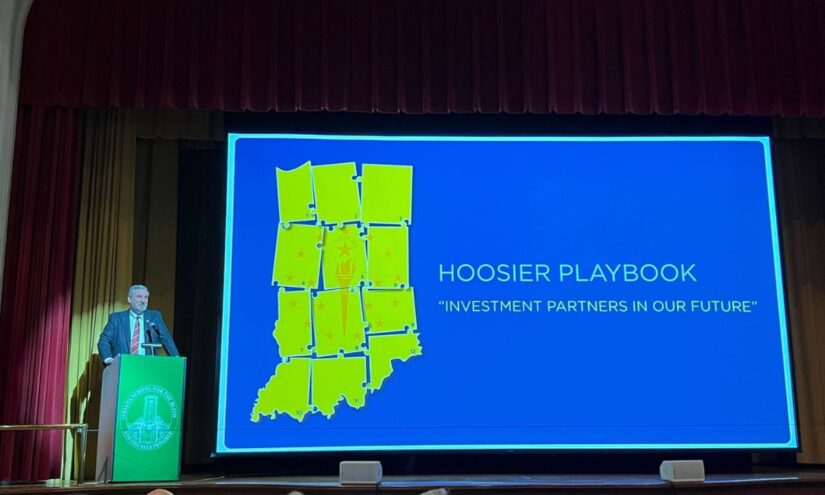During this summer, a team of students from MIT embarked on a journey to the sou …
Indiana Governor Holcomb Unveils Education and Workforce Agenda
Carlos Changemaker

Indiana Governor Eric Holcomb is prioritizing K-12 literacy initiatives and workforce training in his final term, although he is not seeking specific policies relating to Medicaid spending concerns. The governor unveiled his 2024 agenda, which focuses on expanded pre-K and childcare voucher eligibility, as well as increased access to local-level disaster relief. The agenda includes earlier access to IREAD-3 testing and aims to tighten the state’s retention policy for third-grade students who fail the exam. Holcomb’s goal is for 95% of third-grade students to be proficient readers by 2027.
The governor’s reading plan could result in more third-graders being held back a year in school. Currently, the IREAD-3 exam is only required in third grade, but the administration hopes to expand testing to second grade as well. Students who fail the exam can already be held back, with exceptions for disabled children or English-language learners.
In addition to literacy initiatives, Holcomb’s agenda includes a mandatory computer science course for high school graduation and efforts to expand early childhood education and child care options. The plan also aims to make it easier for Hoosiers to access disaster relief funds.
The governor’s priorities align with those of Republican legislative leaders, who have stated that the 2024 session will focus on non-controversial topics. However, issues such as Medicaid reimbursement rates, chronic absenteeism, and regulation of large water transfers are not included in Holcomb’s agenda.
Indiana Secretary of Education Katie Jenner supports the inclusion of a legislative piece to clarify the state’s retention policy and emphasize early interventions in kindergarten, first, and second grades. A pilot program has already allowed second graders to take the IREAD-3 exam, providing valuable data for parents and teachers to support students’ reading development.
While Holcomb’s agenda does not require reopening the state budget, funding for summer school is being primarily allocated to physical education and health courses. Educators and officials are considering how to better allocate these funds to support students who need additional help in reading and numeracy.
Although high absenteeism rates have been linked to low literacy rates, Holcomb’s agenda does not address chronic absenteeism. However, the governor urges parents not to underestimate the adverse impact of keeping their child out of school and supports a discussion on attendance.
Other priorities in Holcomb’s agenda include a mandatory computer science course, expanded three-year Bachelor’s degree programs, and increasing accessibility to child care and early education. The plan also seeks to improve access to disaster relief funds for individuals and counties.
Holcomb is confident that the state can afford to increase available disaster relief aid, as the fund is financed by firework sales. However, caps will still be in place to prevent depletion of the state fund.


